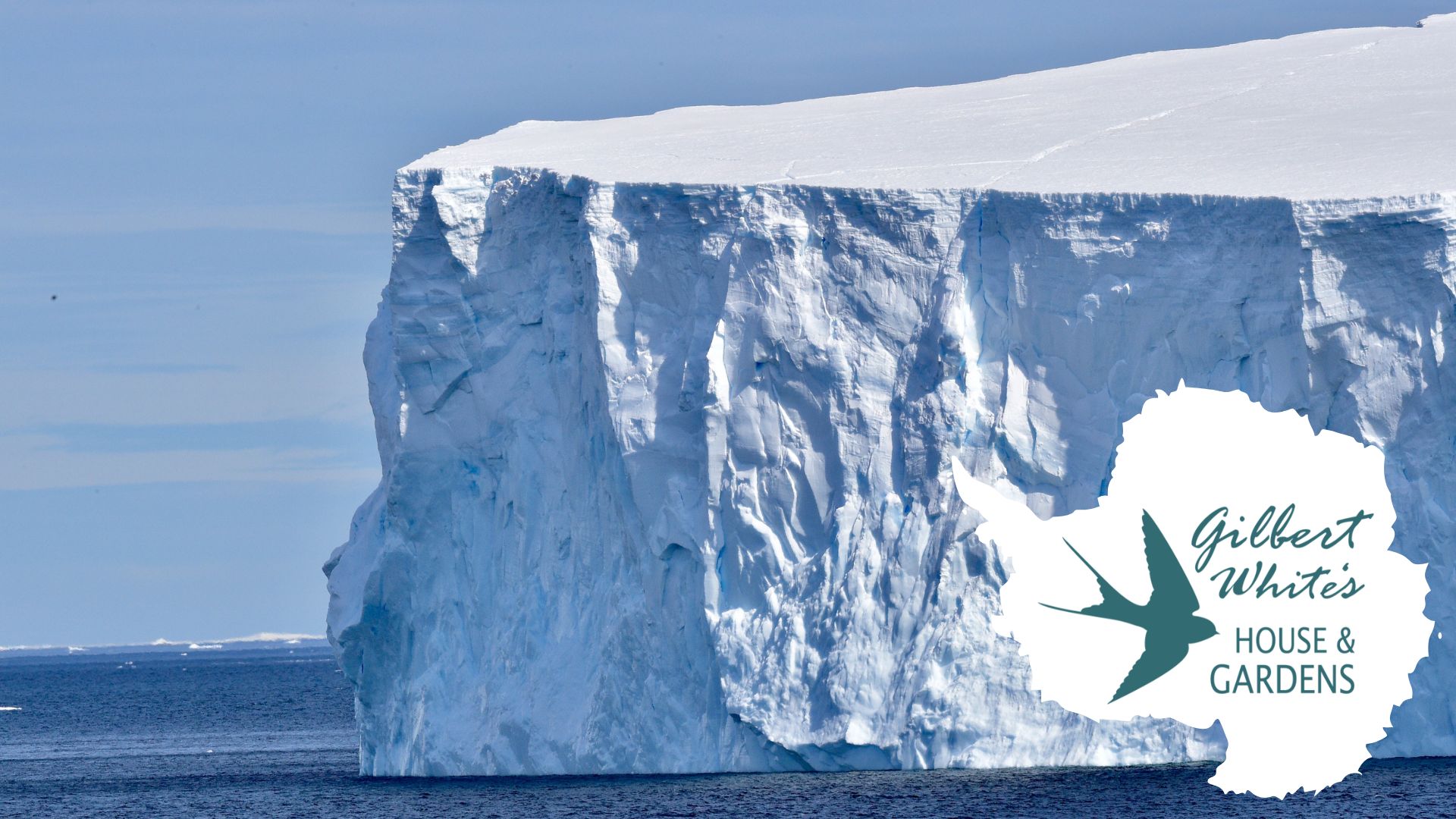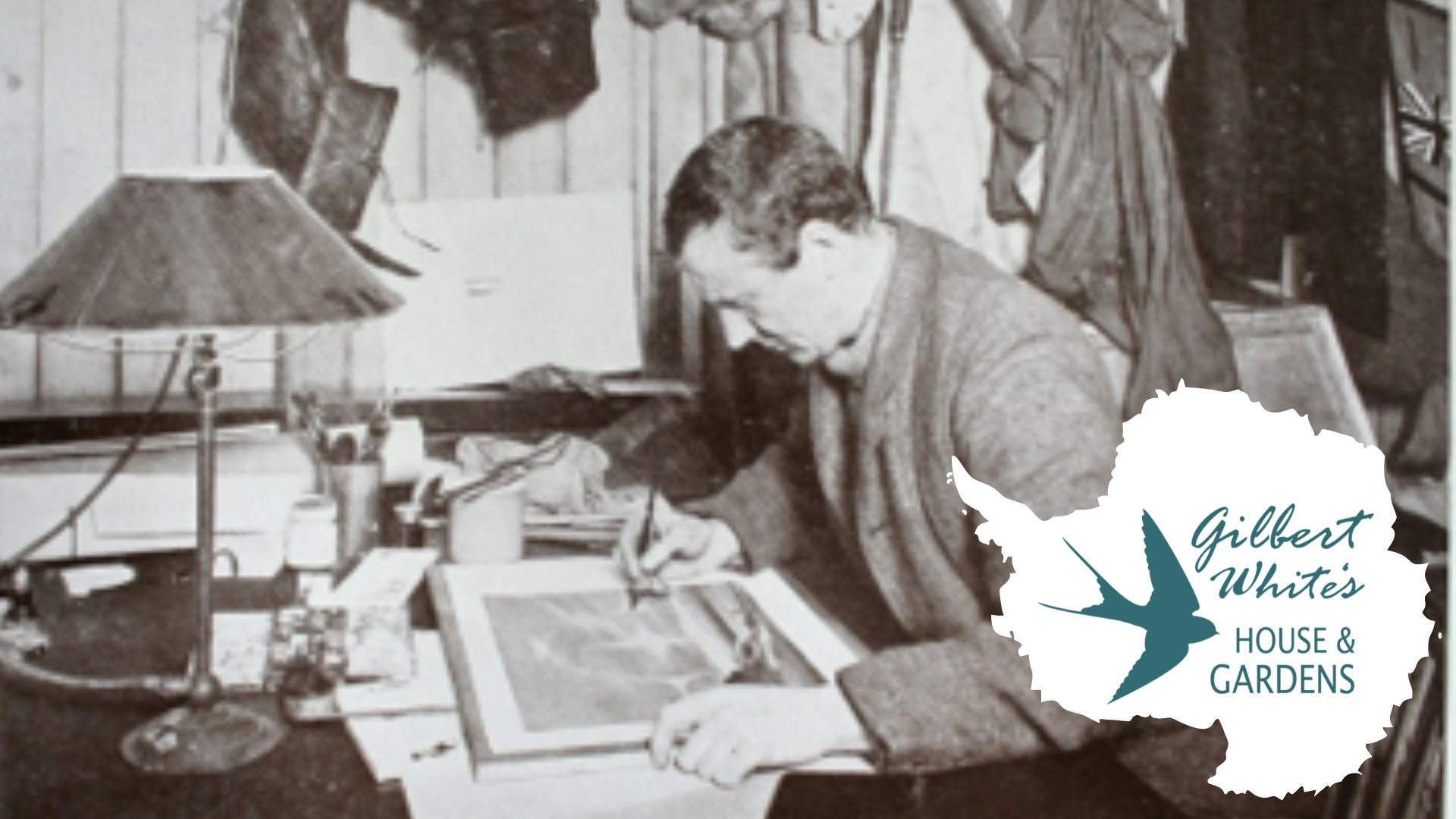The Events Team have done a fantastic job at bringing together cutting-edge Antarctic research and current day ties to the lionised Antarctic explorers. So, as the frosts harden the ground, and there’s a whisper of snow amongst the cold air, it’s the perfect time of year for the Antarctic Talk Series!
This year, attendees can choose to either listen to the talks in the historic barn at Gilbert White’s House & Gardens where drinks will be available to purchase, or to snuggle up at home and watch them over zoom. Tickets can be bought onsite or online for £10.
The Quest Chronicle – The Story of the Shackleton-Rowett Expedition
The series kicks on January 26th, at 7pm, with Dr Jan Chojecki presenting his fascinating book ‘The Quest Chronicle’, which using largely unpublished letters, logs and diaries accounts the events of the voyage of the Shackleton-Rowett expedition aboard the Quest, which set off in 1921.The Quest, carried the legendary explorer Sir Ernest Shackleton, on what turned out to be his last expedition. The expedition was financed by close schoolfriend, businessman and philanthropist John Quiller Rowett, whom was Dr Jan Chojecki’s grandfather.
Dr Chojecki’s exquisite insight into this world of Antarctic exploration will have you mesmerised. As part of the BBC Radio 4 programme ‘Shackleton’s Cabin’, Dr Chojecki told the story of how Shackleton’s cabin from the Quest was restored, revealing just a small snippet of this intriguing period of history from his book. For the chance to get a signed copy of ‘The Quest Chronicle’ make sure you book your tickets and come along to the Field Studies Centre barn.

Searching for Clues to the Future in Antarctica’s Past
The second talk in the series brings the scientific expertise of Dr David Wilson, lecturer from the Department of Earth Sciences at University College London, to the Field Studies Centre Barn on February 23rd, at 7pm.
This talk explores the incredible climatic changes Antarctica has experienced in the past and what this can tell us about the future. Dr Wilson will reveal the major role that the Antarctic ice sheet plays in the Earth’s climate system, from the albedo effect cooling the planet, to limiting sea level rise, to controlling the pathways of deep ocean currents. Predicting how the ice sheet will behave in a future warming world has been a major challenge for scientists. Fortunately, both sediment cores and ice cores from Antarctica allow us to travel back in time to explore how the Antarctic ice sheet behaved during past warming events, such as those 130,000 and 400,000 years ago.
This is a story of geological detective work, and one that is still ongoing. By deciphering the chemical fingerprints left behind in seafloor sediments and in the ice itself, we can answer questions such as: How did the ice sheet respond to past ocean warming? What can we learn about Antarctica’s future? And what are the implications for humanity?

Illustrating the Terra Nova expedition
The final talk in the series draws another Dr Wilson to the barn – Dr David M. Wilson FZS – who similarly to Dr Chojecki, holds close family ties to the legendary British Antarctic expeditions.
Dr David M. Wilson FZS, is the great-nephew of Dr Edward Wilson, who was the last of the Great Expedition artists. Dr Edward Wilson participated in the Discovery Expedition (1901-1904) and the fateful Terra Nova expedition (1920-1913), following Captain Scott’s request for Wilson to be the other half of a pioneering illustrative team, alongside Herbert Ponting (the first professional photographer to visit Antarctic). The pair’s work for the Terra Nova expedition remains the largest illustrative project of the Antarctic to date.
Dr David M. Wilson, will reveal how the artistic skill of this talented pair, inspired the unveiling of a new Continent in ways which still define its illustration today at the Field Studies Centre barn on March 30th, at 7pm.

